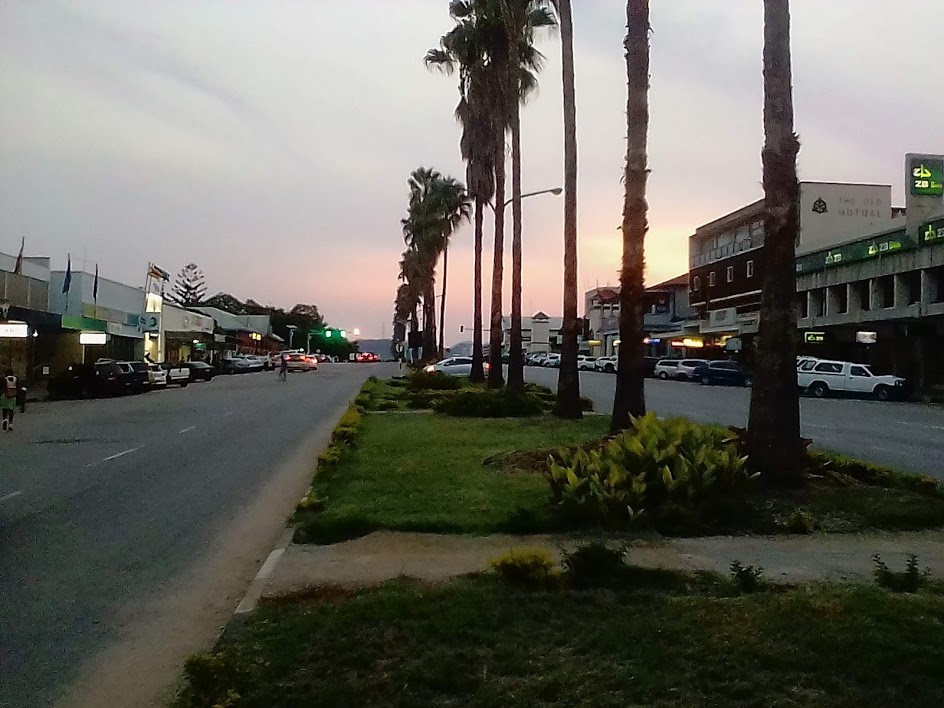Ndau Festival kicks off
Share
THE annual three-day celebration of Ndau culture, the Ndau Festival of the Arts
(Ndafa kicked off on Saturday (Sept 23) boosted by participation of students from
three national universities and one teachers’ college.
Theme for this year is, Ndau Culture: Enhancing the Conservation of the
Environment and Natural Resources for food Security. The festival was held on
September 23, at Bangira Village in Chikore, Chipinge.
The festival attracted participation of students from tertiary institutions such as Great
Zimbabwe University, the Midlands State University, Manicaland State University
and Marymount Teachers' College.
The participation by tertiary institutions is because as a festival, it is not only into
performances but research is also key, hence such an approach is appreciated by
many tertiary institutions.
Festival director, Phillip Kusasa, says as an ethnic group they felt there was much
space for research since “their culture was not given enough space until 2013 when
there was a constitutional nod that Ndau could enjoy a full space to uniquely define
themselves through language and other elements of culture”.
Among the highlights this year was the festival hosting agro-ecology biased
organisations, such as the Green Institute Trust based in Chipinge, Refugee
Coalition for Climate Action (RCCA) from Tongogara Refugee Camp in Chipinge,
Participatory Organic Research, Extension and Training (PORET) Chimanimani,
Zimbabwe Association of Young Archaeologists and Heritage Practitioners
(ZAYAHP), Zimbabwe Work camps Association, and The Ecological Resources
Care Trust.
Also participating were Book Publishers since the Ndau Festival has a compound
vision that also seeks to address the language gap. Some book publishers such as
College Press, which is committed to publication of indigenous languages-related
books were exhibiting.
Dzekanyi Publishers and Essential Book Publishers also had some book displays at
the event.
On the entertainment from, the Mutendi High School Brass Band was expected to
liven up the stage, as was Mt Selinda High School Choir.
There was also an exhibition of a poetry Anthology on Cyclone Idai penned by six
teachers from Chimanimani and Chipinge.
Asked about the choice of this year’s theme, Kusasa said: “Ndafa does not exist in a
vacuum. It needs to be relevant and more pragmatic or utilitarian. The world over is
in trauma because of climate change and poor environmental management practices
that lead to untold hunger due to perennial droughts.
“Ndafa, therefore, needs to take lead in awareness campaigns meant to empower
people with meaningful education on environmental health and best farming
practices that can assure good yields, hence food security.
“Human errors have led to all mishaps that result in malnutrition or poor harvests.
Humanity is still contented with some agro-practices agro-seeds that are not
environmental friendly, so they need to be taught about how best they can utilise
their land without causing harm to the entire landscape.
“There is need for conservation agro-activities. The seeds themselves must be
sustainable enough, especially during this era when droughts are routine. Despite
the rise in natural disasters, people still need food. However, this can only be
possible if humanity change their mindsets and that can only be done through
educational camps and festivals like Ndau festival of the Arts.”
The festival vision is to revitalise Ndau culture and heritage and Kusasa says that
since the birth of the organisation they had witnessed positive developments in terms
of resetting local people's mindsets.
“Looking back to when we started in 2013, one can confidently say the project is
making strides year in year out. Many have been demonising anything perceived to
Ndau, be it language and local people's cultural dances and spirituality that can
touch on environmental care that embrace taboos, myths etc.
“But today we have witnessed many researchers from different tertiary institutions
and cultural institutions coming to do their fieldwork. We are among the fertile
grounds for researchers for they have been following our programmes that
demystified Ndau culture.
“Book publishers have turned to us for Ndau books since we are genuinely running
project found at the grassroots. We are also involved in translating various
documents into Ndau language.”
Being enterprise in nature, the festival has been shaping artists by providing space
for their performances and finally some even won air-tickets overseas, something not
envisaged for a rural-based organisation that many never thought would make it at
both national and international platforms. For example, performing groups like
Holland Dance Group have become more visible and are being invited to perform at
national events while the director was invited to a leadership workshop in Wale.
Caption 1: Ndau Arts Festival participants







